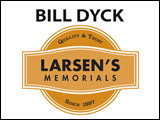The president of the National Pork Producers Council says new U.S. Mandatory Country of Origin Labelling rules will create logistical issues for American pork producers, processors and packers and retailers and will harm the U.S. pork industry.
Last month, in response to a World Trade Organization order to bring Mandatory Country of Origin Labelling into compliance with it’s international trade obligations, the United States issued a final rule amending labelling provisions for muscle cut covered commodities to require the origin designation to indicate where each production step occurred and to remove the allowance for commingling opening the door for Canada and Mexico to seek authority to impose retaliatory tariffs on imported U.S. products.
Randy Spronk, the president of the National Pork Producers Council, on hand for World Pork Expo 2013 in Des Moines, says, while the industry has adapted well to the previous rule the new version will be negative to the U.S. pork industry.
I think probably the biggest one here on the change is not to allow co-mingling.
You had A, B and C labels with the Country of Origin Labelling.
You could actually label it a product of United States, you could label it a product of Canada and there was another label that you could say it’s a product of Canada and the United States.
That’s no longer going to be allowed here.
It would have to specifically say where it was born, in other words born in the United States, it would have to say specifically where it was raised and then it’s going to have to specifically say where it was slaughtered.
You can understand of pigs that are coming from Canada, whether they’re coming in as an isowean, whether they’re coming in as a feeder pig or whether they’re coming in as a slaughter hog creates several different labels and creates logistical issues for the packing and processing and the retail industry and so we do think it’s going to have some negative consequences in the market.
Spronk says separation of pigs from Canada and the United States in packaging and labelling becomes very difficult logistically and the industry believes this is not a good fix.



